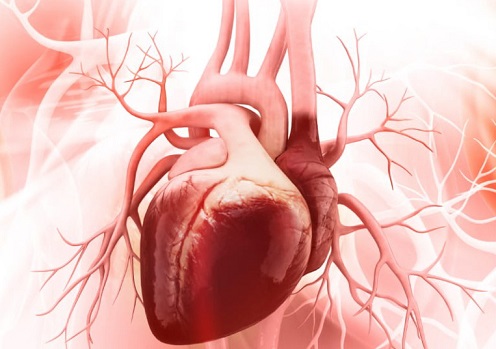Nikhi Prasad Fact checked by:Thailand Medical News Team Jul 09, 2024 9 months, 2 weeks, 3 days, 17 hours, 34 minutes ago
Cardiology Updates: Heart disease continues to be the leading cause of death worldwide. Recent research has shed light on a protein known as Specificity Protein 1 (SP1) and its significant role in the development and progression of various cardiovascular diseases. This
Cardiology Updates news report delves into the findings of a comprehensive review by researchers Dr Jie Ding, Dr Aminah I. Fayyaz, Dr Yuchuan Ding, Dr Dandan Liang, and Dr Ming Luo from Tongji University-China and Wayne State University, Detroit-USA.
 The Role of Specificity Protein 1 (SP1) in Heart Disease
What is SP1?
The Role of Specificity Protein 1 (SP1) in Heart Disease
What is SP1?
SP1 is a transcription factor, a type of protein that helps turn specific genes on or off by binding to nearby DNA. It was the first Cys2-His2 zinc finger transcription factor to be identified in mammals. This protein plays a critical role in regulating gene expression, influencing a wide range of cellular processes, including growth, differentiation, apoptosis (programmed cell death), and inflammation.
How Does SP1 Affect Cardiovascular Health?
-Regulating Heart Disease Genes
SP1 is heavily involved in regulating genes related to heart disease. By binding to Guanine–Cytosine (GC)-rich sequences on promoter regions of target genes, SP1 can influence various cellular functions. For instance, it affects genes related to insulin-like growth factor 1 (IGF-1), fibroblast growth factor 2 (Fgf2), and vascular endothelial growth factor (VEGF), which are crucial for heart health.
-Impact on Myocardial Ischemia-Reperfusion Injury
Myocardial ischemia-reperfusion injury (MIRI) occurs when blood supply returns to the heart after a period of ischemia or lack of oxygen. This reperfusion can cause further damage through oxidative stress, calcium overload, and inflammation. Studies have shown that SP1 plays a pivotal role in these processes. For example, reducing SP1 levels can decrease calcium overload and protect heart cells during MIRI.
-Role in Coronary Atherosclerosis
Coronary atherosclerosis involves the buildup of plaques in the coronary arteries, leading to heart disease. SP1 contributes to the progression of atherosclerosis by regulating inflammation, lipid metabolism, plaque stability, and endothelial function. By influencing these pathways, SP1 can either promote or inhibit the development of coronary heart disease.
Therapeutic Potentials of Targeting SP1
Given its involvement in various pathological processes, SP1 has emerged as a potential target for therapeutic intervention in cardiovascular diseases.
-Managing Myocardial Injury
SP1's role in regulating calcium transport and oxidative stress response makes it a key target in managing myocardial ischemia-reperfusion injury. Treatments that modulate SP1 activity could potentially protect heart cells from damage during ischemia and reperfusion.
&am
p;nbsp;
-Preventing Atherosclerosis Progression
By influencing macrophage activity and lipid metabolism, targeting SP1 can help manage the progression of atherosclerosis. Therapies that enhance SP1's beneficial effects or inhibit its harmful activities could improve plaque stability and reduce the risk of coronary events.
-Addressing Cardiac Hypertrophy and Fibrosis
Cardiac hypertrophy (abnormal enlargement of the heart) and fibrosis (scarring of heart tissue) are common responses to chronic high blood pressure and other stressors. SP1 is involved in these processes by regulating gene expression related to cell growth and extracellular matrix production. Targeting SP1 could help prevent or reverse these pathological changes.
Future Research Directions
While the current understanding of SP1's role in cardiovascular diseases is substantial, there are still many aspects that require further investigation. Future research should focus on:
-Elucidating the Detailed Mechanisms: Understanding how SP1 contributes to inflammation and myocardial ischemia-reperfusion injury will help develop targeted treatments.
-Exploring Genetic Impact: Investigating the role of SP1 in gene regulation related to coronary atherosclerosis and cardiac remodeling can identify new therapeutic targets.
-Examining SP1 in Various Cardiac Conditions: Studies should explore SP1's effects in conditions like diabetic cardiomyopathy, hypertensive heart disease, and other forms of cardiomyopathy.
-Investigating SP1 in Arrhythmias: Understanding SP1's involvement in arrhythmias, such as atrial fibrillation and long QT syndrome, could lead to new treatments for these conditions.
Conclusion
The research on SP1 offers promising insights into its role in cardiovascular health. By regulating key genes and pathways involved in heart disease, SP1 presents a potential target for new therapeutic interventions. As scientists continue to explore its mechanisms and effects, SP1 could pave the way for innovative treatments to combat heart disease and improve patient outcomes.
The findings from this research were published in the peer-reviewed journal: Biomolecules.
https://www.mdpi.com/2218-273X/14/7/807
For the latest
Cardiology Updates, keep on logging to Thailand Medical News.
Read Also:
https://www.thailandmedical.news/news/blood-pressure-fluctuations-and-heart-health-a-new-insight
https://www.thailandmedical.news/news/how-covid-19-worsens-heart-disease-via-mir-146a-and-mir-27a
